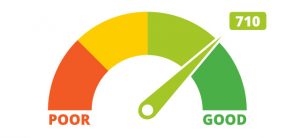Understanding local mortgage rates and the way in which the borrowing process unfolds is essential if you want to get a good offer on your mortgage loan. While most companies will explain this process in greater detail, it’s always a good idea to look it up yourself, so you can get down to business talking about them more thoroughly when you meet up with your mortgage lender’s representative.
An Overview of Mortgage Interest Rates
There are several factors that influence mortgage rates as a whole, and mortgage rates Colorado has are no exception. Your credit  score, for instance, weighs in heavily in determining the interest rate on your new loan, since most lenders will not be willing to offer a lower interest rate unless your credit score is above 600.
score, for instance, weighs in heavily in determining the interest rate on your new loan, since most lenders will not be willing to offer a lower interest rate unless your credit score is above 600.
The location and price of your new home, as well as the loan amount you want to borrow, will also be determining factors along with your down payment. Finally, the interest rate type (fixed or adjustable) and your loan term – how long you will take to repay the loan – will be the last two determining criteria, both of which will factor in a great deal to determine how much your rate will ultimately be.
How to Find Out How Much You Can Borrow in Colorado
Borrowing money for a new home in Colorado depends on many crucial factors, and mortgage rates are only part of the issue. Knowing how much you can borrow and adjusting your finances toward making sure that you can land the lowest possible interest rates is essential to your long term success and stability as a borrower.
Here are a few of the main steps you have to take to find out the information you need before getting any mortgage loan:
- Get your credit report, and get a detailed overview of your current income and spending plan, while taking into account bills, rent, current loans that have to be repaid, credit card payments and any other additional debts.
- Look up Colorado mortgage rates for the type of loan you are interested in, and compare rates between different companies to find out which interest rate offer is more advantageous.
- Click on all the offers you find to be more appealing to your current budget and abilities, and look up additional requirements – such as credit score, down payment and required fees.
- If everything checks out, schedule appointments with each lender, and make up a list of questions about the offers in question. Also, remember to ask mortgage companies about additional mortgage offers and plans that you might qualify for – such as VA loans or special offers for first time home buyers.
- If your credit score or down payment isn’t up to par with the company’s requirements, consider improving on your finances, rather than taking the risk to borrow your preferred amount with a higher interest rate.
Remember that not all websites offer the same values for mortgage rates, and if you want the most accurate assessment, you will have to check out several Colorado mortgage rate comparison websites.
In most cases, however, you’ll find that it won’t be difficult to acquire the information you need. Also, with the most helpful Colorado mortgage representatives, you can rest assured that all your questions will be answered during the appointment you schedule with the mortgage lender.

 into one of the following forms of retirement accounts:
into one of the following forms of retirement accounts: